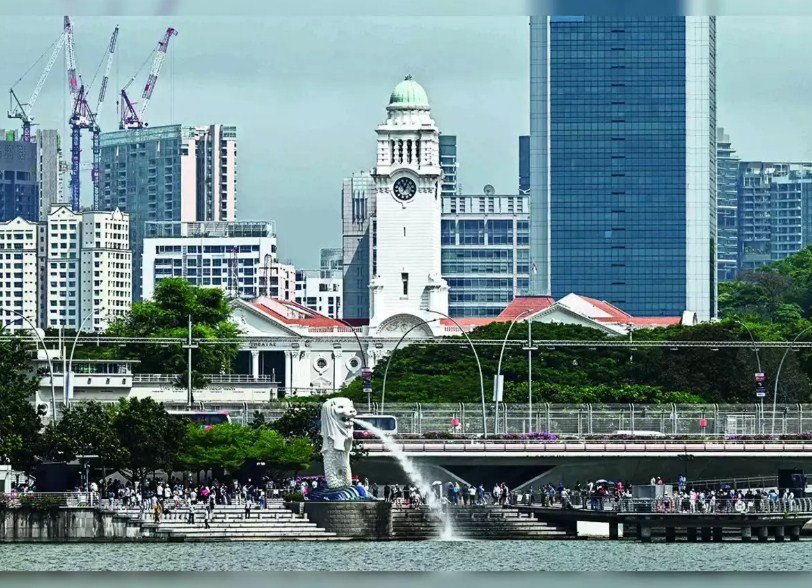Some of the biggest local and international banks in Singapore are facing scrutiny for their alleged involvement in one of the city-state’s largest money laundering cases involving more than S$1 billion ($740 million) of assets. The case has raised questions about the safeguards against illicit money flowing into one of the world’s most important financial hubs.
How the money laundering scheme worked
According to the charge sheets seen by Bloomberg News, some of the individuals who were arrested and charged this month held funds totaling millions from unlicensed moneylending in China and illegal gambling. They allegedly used their criminal proceeds to buy luxury cars, Tether stablecoins and in one case, an upscale condominium unit near the city’s prime shopping belt for S$23 million. Some also allegedly had millions in safe deposit boxes held with Certis Cisco Security Pte., a security firm backed by state investor Temasek Holdings Pte.
The accused allegedly used fake documents and shell companies to deceive banks and transfer funds between accounts. They also allegedly tried to cheat Oversea-Chinese Banking Corp., Standard Chartered Plc and CIMB Bank Bhd. using forged documents, the charge sheets show. The banks were not aware of the fraudulent nature of the transactions and did not report any suspicious activity to the authorities.
Which banks are involved
The wide roster of banks that have been drawn into this scandal include United Overseas Bank Ltd. and the local units of Citigroup Inc. and RHB Bank Bhd., where some of the accused held funds. In addition, DBS Group Holdings Ltd., the country’s largest bank, and Bank of Singapore Ltd., OCBC’s private-banking arm, are both creditors to investment firms linked to two accused individuals, according to business filings seen by Bloomberg News.
The Monetary Authority of Singapore (MAS), the central bank and financial regulator, has said that it is seeking documents from at least 10 financial institutions in relation to the case, although it did not name them. The MAS has also said that it will take “firm action” against any institution or individual that has breached its rules or laws.
What are the implications for Singapore
The money laundering case is one of the biggest scandals to hit Singapore’s banking sector, which is known for its high standards of compliance and anti-money laundering (AML) measures. The case has exposed potential gaps in the system and raised concerns about the reputation and integrity of the city-state as a global financial center.
Singapore has been rocked by previous scandals involving huge money flows from Malaysia’s state fund 1MDB and German firm Wirecard AG. The blow-ups have led to financiers being banned, people jailed and banks slapped with fines for inadequate controls. In May, lawmakers passed a bill that paved the way for banks to share information on potentially risky clients.
The MAS has said that it will review the adequacy of existing AML rules and guidance, and work with the industry to strengthen them if necessary. It has also urged financial institutions to remain vigilant and report any suspicious transactions promptly.

